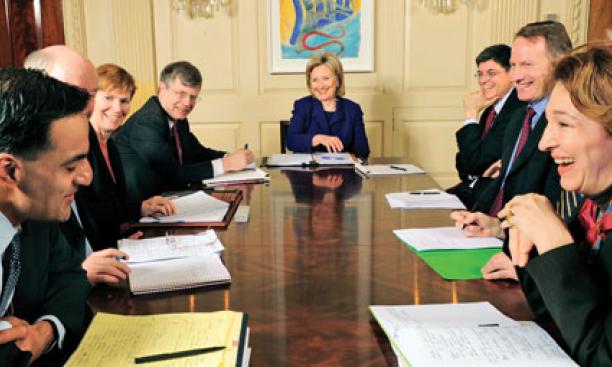

Woodrow Wilson School Dean Anne-Marie Slaughter ’80 took a leave from Princeton in 2009 to become the State Department’s director of policy planning and provide Secretary of State Hillary Clinton with “out-of-the-box thinking” on foreign policy. She also was heading a review, to be completed this fall, which will provide a blueprint for advancing the nation’s priorities in foreign policies — not just in diplomacy and responding to crises, but in “efforts to invest in the long-term health, prosperity, and education of people around the world,” she explained. “I would call that a sea-change in American foreign policy.” Slaughter — who said she made a two-year commitment to Clinton — spoke recently to PAW’s Mark F. Bernstein ’83.
Has the Obama administration’s foreign policy been criticized unfairly?
We are not getting full credit for things we have achieved. We came in and had a huge amount of repair work to do, and we did it. It is fair to say that we have not made progress on a lot of issues we wish we had made more progress on, but you have to recognize that many of these are decade-long challenges. It is fair to measure us now on how much we achieve on an affirmative agenda. We have succeeded, for example, in getting a new START treaty and in moving troops out of Iraq.
Does academic thinking influence how public policy is actually made?
I joke that I count the number of times a day that somebody in the State Department uses the word “academic” to mean “irrelevant.” As one of the department’s resident academics, I smile, but I am also thinking to myself that I can track the intellectual pedigree of most of the ideas I am working with in a given day to an academic article. Articles come out and are debated in the academic literature, then they make their way into the think-tank world, and from there they make their way into government policy. It takes about 10 years.
Ten years seems like a lifetime in policy planning. Isn’t the world then in a different place?
